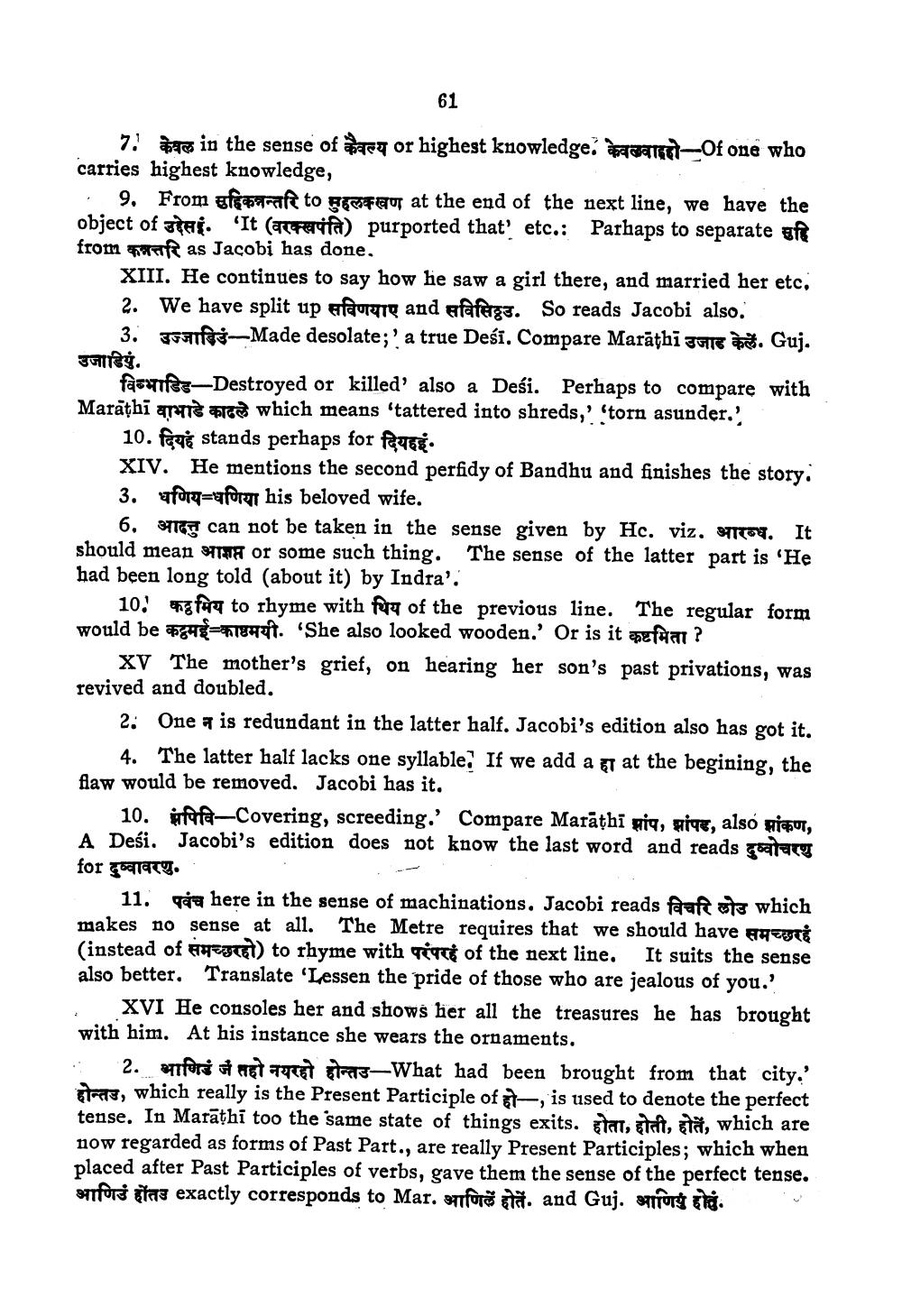________________
61
7. me in the sense of any or highest knowledge. ATTI_Of one who carries highest knowledge, • 9. From afraft to g5 eur at the end of the next line, we have the object of JIHL. 'It aimanta) purported that etc.: Parhaps to separate af from the as Jacobi has done.
XIII. He continues to say how he saw a girl there, and married her etc, 2. We have split up aurate and afatergy. So reads Jacobi also. 3. FAITS—Made desolate;. a true Desi. Compare Marāthī JGHe . Guj.
face -Destroyed or killed' also a Deśi. Perhaps to compare with Marathi and a which means 'tattered into shreds, (torn asunder.!
10. fege stands perhaps for fauce. XIV. He mentions the second perfidy of Bandhu and finishes the story. 3. aforyzafore his beloved wife.
6, 3716 can not be taken in the sense given by Hc. viz. fo. It should mean TH or some such thing. The sense of the latter part is 'He had been long told (about it) by Indra'.
10, face to rhyme with fury of the previous line. The regular form would be कट्ठमई-काष्ठमयी. She also looked wooden.' Or is it कष्टमिता?
XV The mother's grief, on hearing her son's past privations, was revived and doubled.
2. One 7 is redundant in the latter half. Jacobi's edition also has got it.
4. The latter half lacks one syllable, If we add a g at the begining, the flaw would be removed. Jacobi has it.
10. fefa-Covering, screeding.' Compare Marāthī pia, pite, also nisur, A Desi. Jacobi's edition does not know the last word and reads tary for salary.
i gåa here in the sense of machinations. Jacobi reads paaft ats which makes no sense at all. The Metre requires that we should have fu TË (instead of neyta) to rhyme with Time of the next line. It suits the sense also better. Translate 'Lessen the pride of those who are jealous of you.'
XVI He consoles her and shows her all the treasures he has brought with him. At his instance she wears the ornaments.
2. for et tet 3What had been brought from that city.' stats, which really is the Present Participle of t, is used to denote the perfect tense. In Marathi too the same state of things exits. stat, alat, ata, which are now regarded as forms of Past Part., are really Present Participles; which when placed after Past Participles of verbs, gave them the sense of the perfect tense. आणिउं होतड exactly corresponds to Mar. आणिलें होतें. and Guj. आणि हो.




